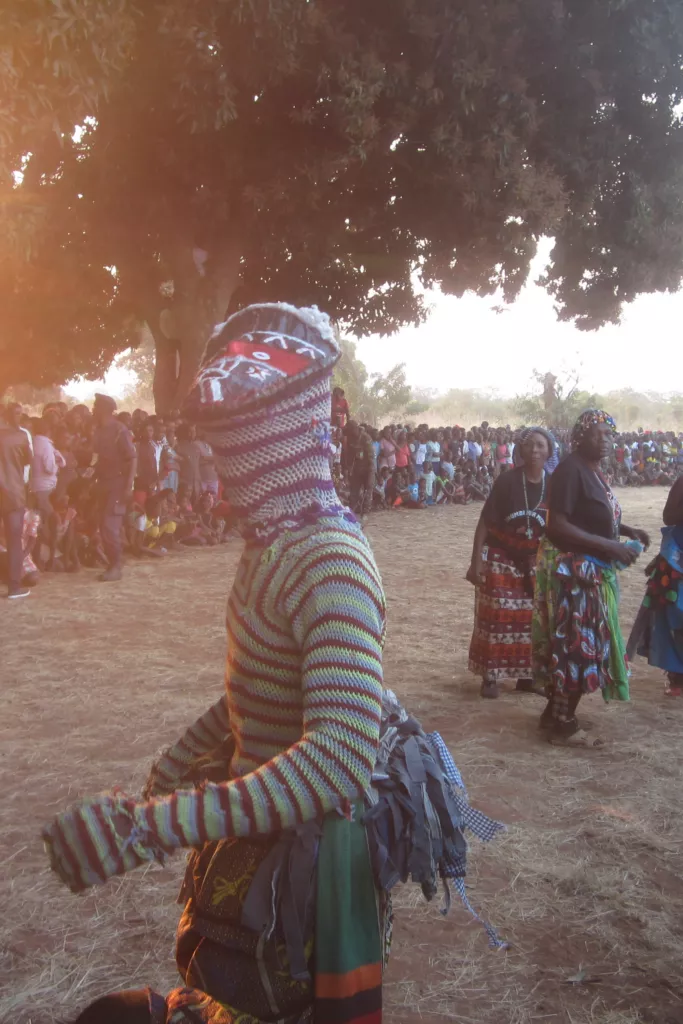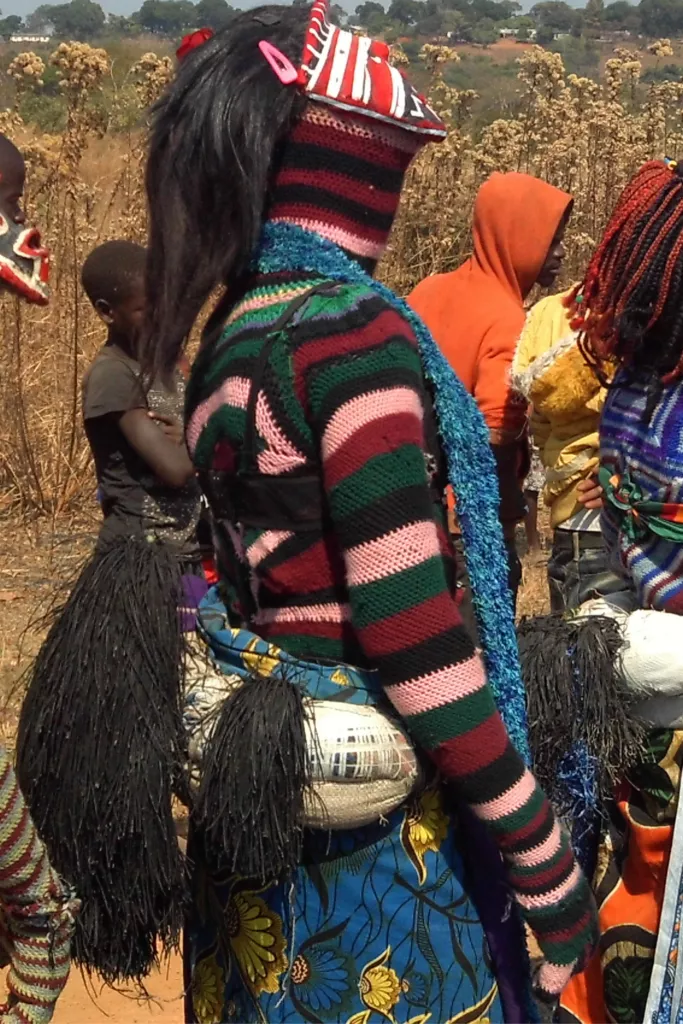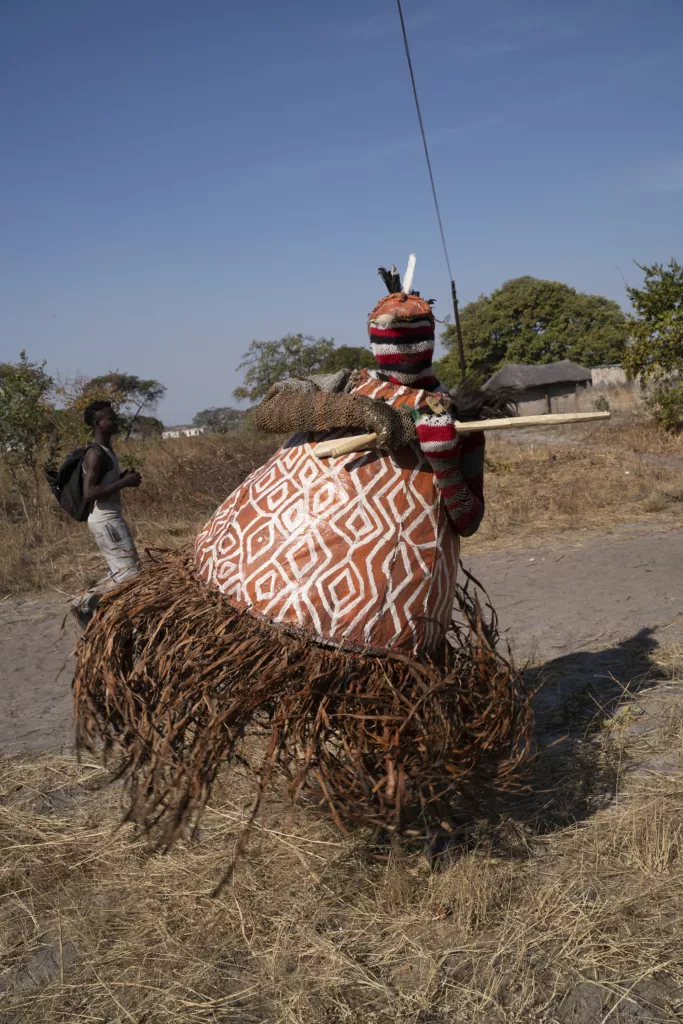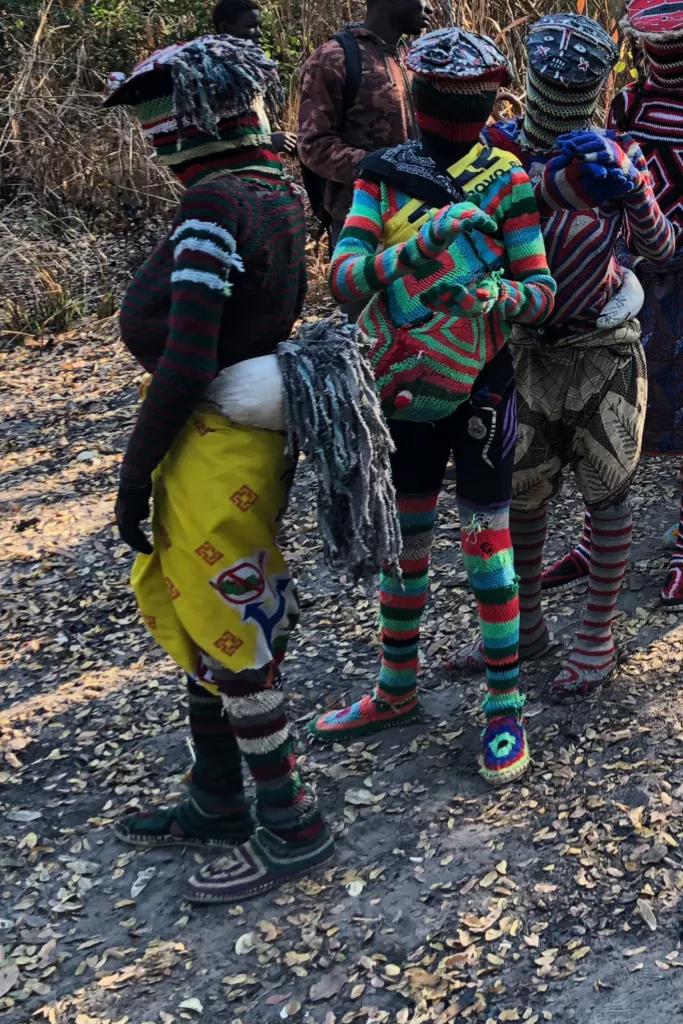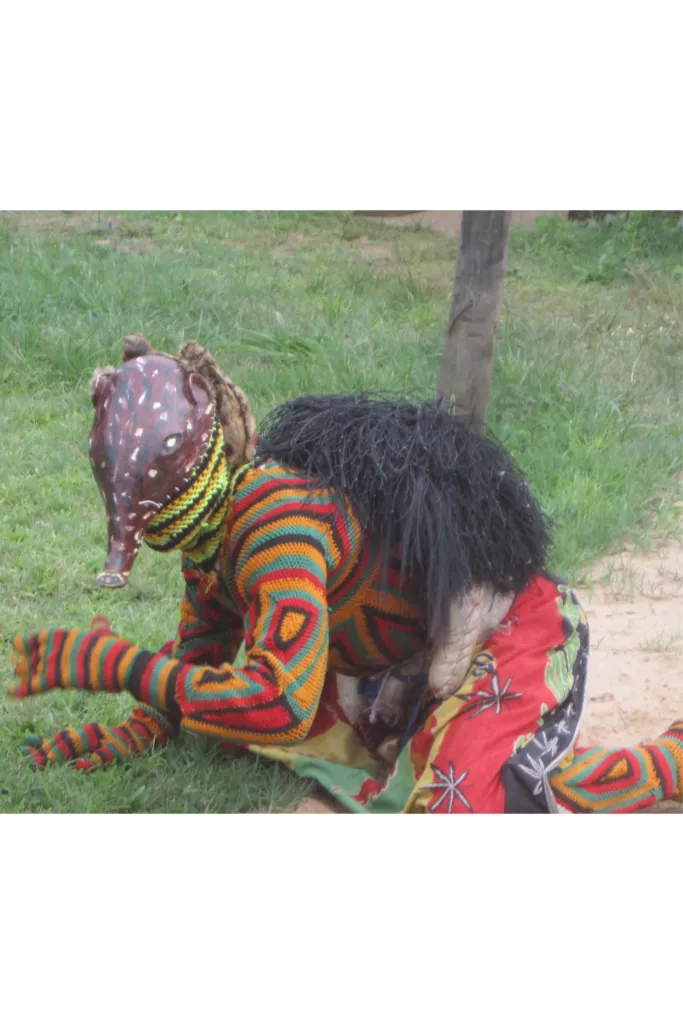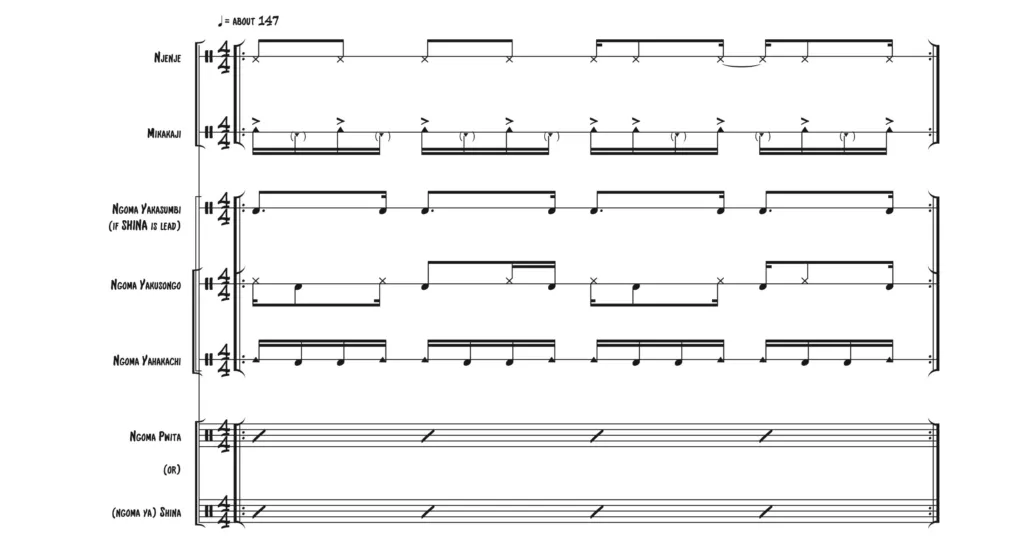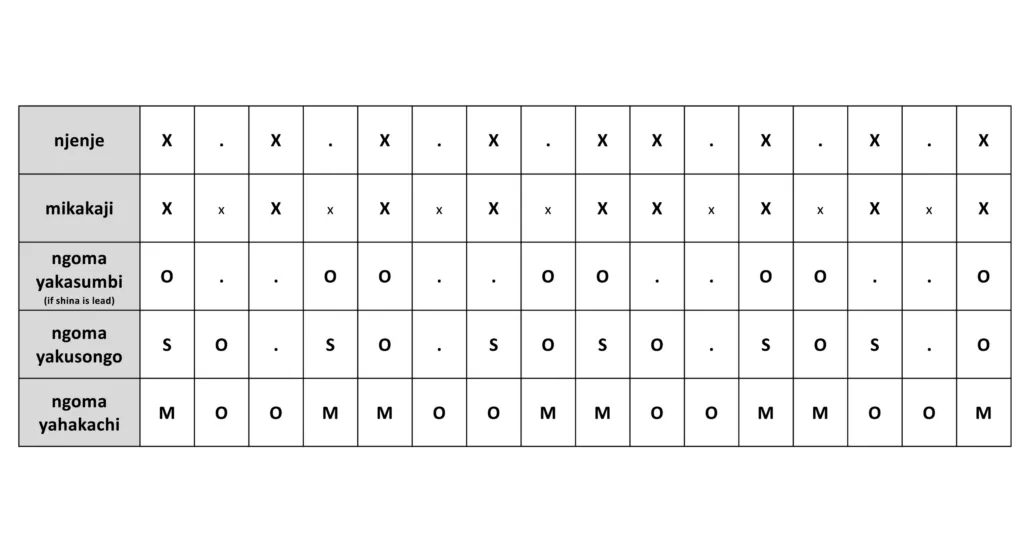Machakili
Alternate Names: Machakiliwa, Kachacha
for higher quality audio, check upcoming ILAM PROJECT; for higher quality video, download from “Videos of Luvale (and Related) Sonic Culture” link
Origin: Luvale
Machakili is historically associated with the Luvale female puberty ritual known as wali (or litungu). As such, it shares many social purposes with Chiyanda. The girl initiates (vamyali) are taught the dance during the seclusion phase of the ritual. They usually perform Machakili during graduation when initiates are returned and presented to the village. Along with Chiyanda, it is one of the primary dances to publicly showcase the readiness of vamyali to reintegrate into society, now as adult women.
Due to these associations with girls, Machakili is a common dance for makishi who playfully interact with women and can emerge at any moment (makishi wachivumbuke). Almost all these makishi wear a chiwamba (dancing waist belt) and lihina (a skirt of chitenge traditional fabric). Many also sport jisangu leg rattles. Most spirits who perform Machakili do so outside of ceremonial activities. It is thus frequently performed in ngoma pwita instrumentation, inside bars and nightclubs, and with the goal of earning money for a drum and dance troupe. In these settings, a likishi fronting the group or a dancer will usually try to recruit as many onlookers to join in the dance as possible.
Machakili is a counter-clockwise circle dance and usually features a leader in the center. This person (or likishi) is usually in charge of songs as well as dance moves, vocal interjections, and game-like interactions. The leader may instruct the circle to move to the ground, wind their waists, or shout a comical proverb. When involving makishi, Machakili is a silly, playful dance. This aesthetic, in combination with its slower dance steps, makes it appropriate for the amusing Chileya Cha Mukanda (literally, the fool of the initiation school) likishi. Chileya sometimes dances Machakili in shina instrumentation in vilende (large dancing events).
This item of repertoire is named after the vocable representing its ngoma yahakachi pattern. This drum pattern is also the occasional sole drum support for a genre known as Kachacha (which features a lead musician beating 3 to 7 drums at once). Kachacha also involves a counter-clockwise circular dance, slow steps, and a leader in the center. Furthermore, people will often sing the same songs in a Kachacha dance as when makishi perform Machakili. For these reasons, many use the words “Kachacha” and “Machakili” interchangeably. Accounting for this colloquial use, I list “Kachacha” as an alternate name for this item of repertoire. However, these are indeed different things.
Instrumentation
When performed for makishi:
- Lead drum: ngoma pwita
- Supporting drums: ngoma yahakachi, ngoma yakusongo
- Timeline: mikakaji, njenje (frequently)
When performed for humans:
- Lead drum: ngoma ya shina
- Supporting drums: ngoma yahakachi, ngoma yakusongo, ngoma yakasumbi (usually)
- Timeline: mikakaji, njenje (sometimes)
Machakili Interactive Mixer
Recorded by Chota in Kabwata Village in Lusaka, Zambia on October 30, 2021 & February 15, 2022.
works best in Chrome & Firefox; allow each track to start loading before playing & refresh if necessary
| njenje | performed by Andrew Wakumelo | |
| mikakaji | performed by Musoka Kafweba | |
| ngoma yakusongo | performed by Chinyama Kelvin Tokha | |
| ngoma yahakachi | performed by William Vunda | |
| ngoma pwita | performed by Chinyama Kelvin Tokha |

